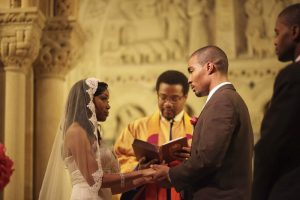
IF WE look at the activities of the modern Church, we can see that most ministers are preoccupied with tasks they have not been divinely assigned to do.
For instance, it is difficult to find direct and strict instructions in the Bible asking pastors to officiate weddings, perform burial services or naming ceremonies.
It is not being said, here, that it is sinful or evil for an ordained minister to perform these tasks, but these are not the essential duties Christ Jesus calls His servants to do.
As we read and hear about the scary statistics of divorce cases involving Christian marriages which were officiated and blessed by pastors, we wonder if the marriages were really blessed.
It is a known fact that most of the weddings that are officiated by pastors these days involve partners who have indulged in premarital sex for years or months.
Thus, many couples receive curses instead of blessings because they began their marital life on a sinful foundation.
Now, if the foundation of a marriage is cursed and destroyed, what can the couples do? How can pastors bless it if the couples do not see the need to genuinely repent of their sins?
This must appeal to Christian leaders to warn bachelors (unmarried men) and spinsters (unmarried women) in churches about the consequences of fornication or sexual immorality.
Also, ministers of the gospel must understand that even though they have the right to officiate weddings and burial services, they have a charge of the Lord to devote themselves to doing the key work Christ called, trained and sent them to do.
We must devote ourselves wholly to prayer and the ministry of the Word (Acts 6: 4). We must commit ourselves to making disciples, baptizing and teaching them to observe the commands of Christ, the Lord. (Matthew 28: 18-20).
In the circumstance, leading ministers may train and delegate their associate ministers or matured members to perform the engagement, wedding and naming ceremonies.
By James Quansah
 clcgh.org Building The Capacity Of Christian Leaders, Equipping The Saints For The Work Of Ministry, Redirecting Straying Christians To The Sound Knowledge Of Christ
clcgh.org Building The Capacity Of Christian Leaders, Equipping The Saints For The Work Of Ministry, Redirecting Straying Christians To The Sound Knowledge Of Christ